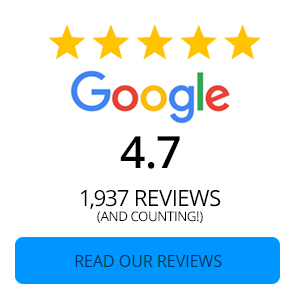Budget and Track Expenses: Understand the core of good money management skills by learning where your money goes.
Build an Emergency Fund: Learn practical tips for setting up a financial safety net for unexpected costs.
Set Achievable Goals: Discover how to create short-term and long-term financial goals that motivate you.
Improve Your Credit: Understand the value of building good credit as a cornerstone of financial success.

Effectively managing your money is one of the most crucial life skills for long-term success. However, mastering your finances can feel overwhelming if you don't know where to start. This guide will walk you through essential money management tips to help you build confidence, take control of your finances, and create a more secure future. At Coosa Valley Credit Union, we believe in "neighbors helping neighbors," so consider this your friendly guide to better financial health.
Budgeting: The Foundation of Strong Money Management Skills
One of the most fundamental financial practices is creating and sticking to a budget. A budget is a roadmap for your money, helping you understand your income versus your expenses. Mastering budgeting is the foundational money management skill that allows you to see where you might be overspending and make informed adjustments.
To start, list all your income sources, such as your salary and any side income. Next, outline your expenses:
Fixed Expenses: These are consistent costs like rent, utilities, and loan payments.
Variable Expenses: These fluctuate, such as groceries, entertainment, and dining out.
Tracking your spending for a month provides a clear picture of your financial habits. Remember, the goal of budgeting isn't restriction; it's about aligning your spending with your financial goals.
Build a Safety Net: The Importance of an Emergency Fund
Life is unpredictable, and unexpected expenses can derail even the best-laid financial plans. This is why an emergency fund is critical. This dedicated savings account is reserved for covering unforeseen costs like medical bills, car repairs, or sudden job loss.
Most experts suggest saving three to six months' worth of living expenses. If that seems daunting, start small by aiming for an initial goal of $1,000 and build from there. This financial cushion provides peace of mind and prevents you from relying on high-interest credit cards in a crisis.
Set Clear Financial Goals
Setting clear and achievable financial goals is key to effective money management. Whether you're saving for a down payment, paying off debt, or planning for retirement, specific goals give your efforts a clear purpose.
Break your goals into three categories:
Short-Term Goals (within one year): Example: Pay off a credit card.
Medium-Term Goals (one to five years): Example: Save for a new car.
Long-Term Goals (five+ years): Example: Consistently contribute to a retirement account.
Once set, break them into smaller, manageable steps. If your goal is to save $10,000 in two years, your target is to save approximately $417 per month.
Develop Strong Credit: A Key Money Management Skill
Your financial health relies heavily on your credit score, as it can influence your ability to get a loan, rent an apartment, or even secure a job. Building and maintaining a positive credit history is a money management skill that opens up significant financial opportunities.
Here are some simple money management tips for building credit:
Pay Bills on Time: Late payments can significantly damage your credit score.
Keep Credit Utilization Low: Aim to use less than 30% of your available credit. For example, on a card with a $10,000 limit, try to keep your balance below $3,000.
Check Your Credit Report: You are entitled to a free report annually from each of the three major credit bureaus. Review it for errors and report any inaccuracies promptly.
Actionable Money Management Tips for Reducing Debt
While debt is a reality for many, it doesn't have to control your financial life. Effective debt management can dramatically improve your financial well-being. Start by listing all your debts, including the balance, interest rate, and minimum payment for each.
Consider one of these popular strategies:
The Debt Snowball Method: Focus on paying off your smallest debt first while making minimum payments on others. This method builds momentum and motivation as you eliminate debts one by one.
The Debt Avalanche Method: Prioritize paying off the debt with the highest interest rate first. This approach can save you the most money in interest over time.
Improving your money management skills doesn't have to be complicated. By implementing these strategies, you can take control of your finances and build a stronger foundation for your future.
Remember, Coosa Valley Credit Union is here to support you on your financial journey. Whether you're just starting out or looking to refine your financial habits, we're your friendly neighborhood resource. Visit Coosa Valley Credit Union for more tools, resources, and personalized money management tips to help you succeed.

